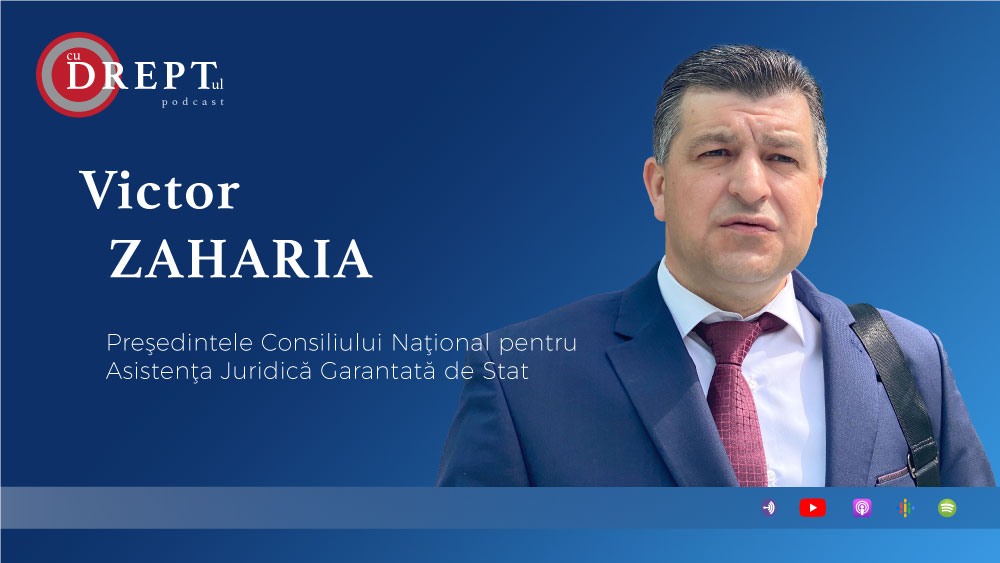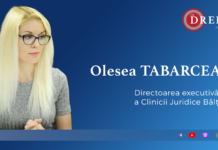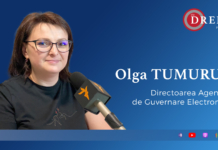The state-guaranteed legal aid system was completely rethought and practically started to be built from scratch 13 years ago, in 2008. Simply put, at the risk of sounding simplistic, the role of the state-guaranteed legal aid system is to make sure that every person, regardless of the knowledge they have or the income they make, have free and equal access to justice. The process is much more complex than just providing a lawyer to the person who needs legal services but who cannot afford them financially. Equally important is the information and legal empowerment of people, so that everyone knows what their rights are and how to act when they are violated. The entire process is coordinated and administered by the National Council for State Guaranteed Legal Aid and its territorial offices.
The President of the National Council for State Guaranteed Legal Aid, Victor Zaharia, expert at the Institute for Penal Reforms, talks about how the justice and the state-guaranteed legal aid systems have evolved in recent years, from the perspective of the beneficiary, the ordinary person.
Victor Zaharia: “Let us look at things from the perspective of a person who is seeking legal protection in a court of law. Would this person be interested in how courts are organized? Maybe less. They would be interested in having their case examined quickly, in having confidence in the judge who pronounces the decision, in having the decision executed in time, the costs such proceedings imply, for the effort to be optimal, and this would be from the perspective of a beneficiary. The justice system and the public sector generally should be more oriented towards the interests and needs of the beneficiaries of such services.”
Cu DREPTul: In general, the reform, the justice reforms that have been happening in recent years aim at this. To what extent is it successful or is it in the process?
Victor Zaharia: “To exaggerate with skepticism is probably not right, because certain steps have indeed been taken, certain measures have been taken that give certain results, but we cannot look at things somewhat indifferently and formalistically, because the adoption of the legal framework does not in itself mean solving certain problems. With the development partners’ support, regulatory acts have been amended, professionals have been trained, attempts have been made to streamline the interaction mechanisms and yet things do not work to the end.
In my opinion, the major problem is probably not so much the law, the content, the text of the law, as the way these rules are interpreted and applied by people. We are talking about human attitudes, the attitudes of professionals, those who have the obligation to execute the law exactly in this spirit, without looking for certain ways to avoid or excuse non-fulfillment of legal duties. This is it. Human resources are probably the number one point.”
Cu DREPTul: Talking about reform, the state-guaranteed legal aid system has also undergone one…
Victor Zaharia: “The state-guaranteed legal aid system, in its current version, has been in place since 2008. If I were to take a brief look back or compare it to what it was until 2008, then the difference is huge. We were talking about the situation before 2008, about the situation where the formal presence of a lawyer was required in a court hearing, because this is the procedural requirement. The current aspirations are of a different nature, the legal framework and the organizational framework allow us to have much higher expectations, the services provided by the state-guaranteed legal aid system to comply with those professional practices that exist in the field of law and state-guaranteed assistance as a whole.
Coming back to the question of whether it is in the process of reform. Yes, it is under construction, a system that is more than ten years old but that continues to show certain needs, needs for improvement. Let’s not forget that courts, prosecutors, other professions have had a much longer history, they are probably in reform, while state-guaranteed aid is under construction and reform, because there are some elements that are currently adapted to meet better expectations, needs, standards.
We have a very good resource group of lawyers who provide state-guaranteed aid upon request. Currently, there are exactly 455 lawyers and these are lawyers who provide state-guaranteed aid in private cases as well. We have a number of providers.
We also have a number of public lawyers who have a special mission, in addition to providing state-guaranteed aid upon request or as designated by the territorial offices. They also have the role of promoting certain innovations and of testing certain innovations, to the extent allowed by the legal framework.
We have a group of paralegals who, unlike in 2008, have stepped closer to the beneficiary, closer to the people who need state-guaranteed legal aid. Let us not forget that state-guaranteed aid does not only mean participation, and acting in court or before criminal prosecution bodies. The problem of access to justice starts where the legal, socio-legal problem starts, and not from the moment when the legal protection is triggered. Apart from that, there are some very good partnerships with the development partners and with the public institutions. Occasionally, things happen maybe differently than we want but, anyway, there are certain partnerships in place.
State-Guaranteed Legal Aid in the Service of the Public
The question then arises – where are we standing? If we were to dwell on the idea of minimum, it has been long since we overcame it, if we really want to operate with a system that is focused on the interests of the beneficiary, on the protection of fundamental rights and freedoms, not departmental interests or departmental comfort, then we still have a lot to do.
For example, the way services are accessed. A recently promoted innovation is the electronic signature. If we look at it from the perspective of marginalized beneficiaries, is this an option? Certainly not. It is an option for someone. Hence, we need to promote other options as well, so as not to allow further marginalization of those who are already vulnerable. In this way, we talk about the development of the system, about bringing the system closer to the requirements that exist, or to what we call good practices.”
Cu DREPTul: Since you have mentioned lawyers and the quality of the work they do, I looked at the Council’s strategy and one of its main objectives, which is still maintained, is to eliminate the stereotype that an ex officio lawyer has a rather formal performance and does not provide quality legal aid. Which are the actions taken to change this, since we are talking about stereotypes and sometimes people who do not necessarily come in touch with the lawyers think so?
Victor Zaharia: “I agree. This is a telescope effect. Many of those working in the justice sector no longer use the term of ex officio lawyer, which is clearly an expression of this stereotype, not to mention the people, the country’s population who have had no contact with the state-guaranteed aid system and then, you know very well, impressions are formed by virtue of certain experiences or by virtue of the experience of others.
The current expectations are for state-guaranteed aid services to be at least at the same level as the quality of legal aid services as a whole. The question is, what is the quality of legal aid services as a whole?”
Cu DREPTul: In this connection, according to my logic, the remuneration of lawyers is next, because you cannot claim maximum quality and involvement when remuneration is not appropriate. In recent years, the lawyers’ remuneration has been increased by 150%. The last increase took place in April 2021. To what extent is remuneration competitive? Please tell me some exact figures.
Victor Zaharia: “Indeed, what should have happened a long time ago – conventional unit adjustment to 50 lei – has happened. It has been a gradual adjustment of the conventional unit to 50 lei. However, I want to tell you one thing. We are convinced that increasing remuneration does not implicitly lead to the same formula for increasing quality. Increasing pay was a very clear imperative. In 2008, certain activity tariffs were established, which were maintained for more than 10 years. In the meantime, you know very well what the dynamics of salaries have been, including in the justice sector, and then it was obvious that you cannot expect quality if a lawyer’s action costs 60 lei. In connection with the adjustments that have been made in recent years, including in 2021, we can refer to that in a simple way: Is the remuneration enough? Probably not. Competitive? Given the context of Moldova, probably yes.
There is still room for improvement, but we are aware, we are in the economic, social, political contexts that we have. Here we should not look at things only from the perspective of how we want it but also from the perspective of what is possible. Accordingly, for the time being, we can say that the level of remuneration of lawyers on request is acceptable and is comparable to the level of remuneration for similar services in Moldova. On average, taking into account the cost per case, we are talking about one thousand lei per case, from A to Z, which can take years. That is what I meant when saying that you should compare to private practice or to the expectations. Of course, it is different, but let’s not forget that we are talking about different categories of cases, some can be a few hearings, others can be a few years, they vary and then these things somehow compensate for each other.
Let us not forget that remuneration is not the only motivating factor for lawyers. There are other elements, too, for example, the recognition of the lawyer as an equal party in the proceeding, the attitude of judges, prosecutors, prosecuting officers, esteem and respect for the work of lawyers. We must understand that the legal profession had a status and a role in the Soviet period. The legal profession as we want it today, including state-guaranteed aid, and the expectations are totally different. We have probably not reached the moment of a critical mass but slowly an improvement can be observed in this respect as well.”
Cu DREPTul: I wanted to go back to the professionals of the system: how does Chișinău differ from the rest of the country and the regions?
Victor Zaharia: “The capital, usually or in many cases in many states, is different from the regions and we are no exception. In Chișinău, if we talk about qualified aid by service providers, we have a pool of lawyers to select from. We have where to raise the level of expectations from, unlike some districts, and I will not refer to a certain district now, but we have several districts where the number of lawyers, as a whole, not only those in state-guaranteed aid, is very low and you have no pool to select from. You have to somehow convince them to access the system and later it is much more complicated to say that they do not do their job diligently or to ask for quality. There are some issues in some districts that deserve attention. Unlike Chișinău, we have paralegals in rural localities and in some districts. This is another approach. When people do not know each other very well, we can talk about a lower level of solidarity of justice sector professionals, because when you have two lawyers in a district, who participate in detentions, provide emergency assistance or qualified state-guaranteed aid, knowing all the professionals in the justice sector, the level of tolerance for violations could somehow be higher.”
The pandemic and the legal profession
Cu DREPTul: I would like to ask you a little about the pandemic. How has the pandemic affected in a good way but also in a not so good way the system as well as access to justice?
Victor Zaharia: “It is hard to mention the multidimensional impact, but there are some things that are obvious. For example, the total number of cases fell from around 60 thousand to 56 thousand, a fact probably caused by the fact that courts were closed for a certain period, by the prioritization of certain types of cases, by the uncertainty of the activity at the end of March-April-May. There is somehow an explanation but figures show us very clearly a decrease; however, there has been an increasing trend in 2021, it can already be felt. Perhaps, those who failed to solve their legal problems where it was possible in 2020 are trying to do it in 2021. The pandemic has shown us that we are behind in the use of technology. Those were public health considerations, while we have efficiency considerations.
We are talking about promoting ways that should have been promoted a long time ago, but making sure not to further marginalize those who are vulnerable and do not have access to technology or do not have the capacity to use the technology.
These elements, however, are further integrated into the system. During the pandemic, for example, remote legal aid was provided, telephone assistance intensified, and so did the use of Skype, Viber, and any means available at that time, and this was done by the territorial offices, by the paralegals as well as by lawyers as a whole. We are talking about attempts to find the most convenient way for the beneficiaries and potential beneficiaries.”
…….
This text is an excerpt from the CuDREPTul podcast. The full version, audio and text, exists only in Romanian.







